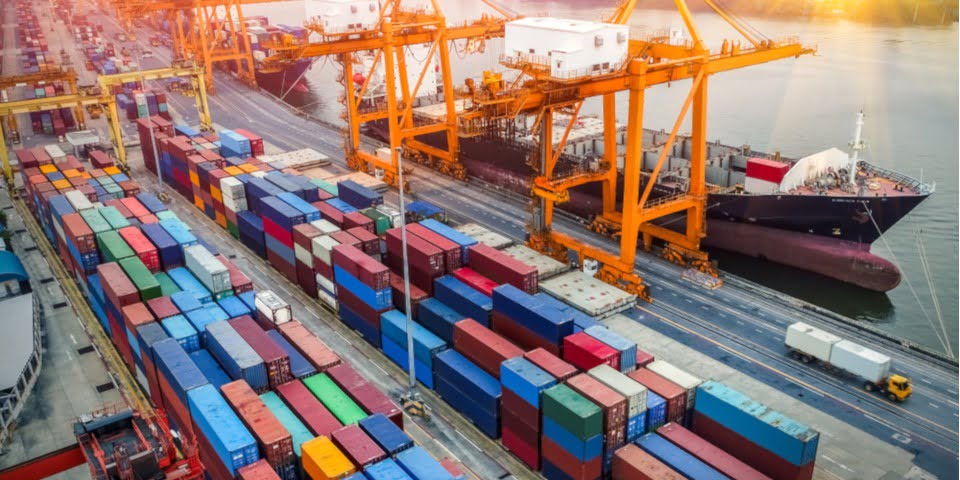“Today’s announcement that Australia will be subject to a minimum baseline 10% tariff is disappointing, but not unexpected, as we deal with an American administration hellbent on remaking the international economic order,” said Innes Willox, Chief Executive of the Australian Industry Group.
“It also sends an ominous signal about what comes next. This will undoubtedly spark retaliation, imposing barriers on well-known trading relationships and driving up costs for businesses and consumers. As more details emerge, particularly how these different tariffs interact with each other, companies will need to make individual assessments on the impact to their businesses, and we still start to feel the consequences in the economy.
“It is particularly bad news for our nation, because we rely on trade for our economic prosperity more than any other economy on earth, with one in four jobs dependent on trade,” he said.
“Australia exports around $22 billion of goods and products to the US annually, and the US market accounts for 4.1% of our exports. The value of our affected exports is equivalent to 0.8% of GDP. The suggested ban on Australian beef is unjustified and we encourage the Government to continue its advocacy.
“Of particular concern is our advanced manufacturing sector, which has very deep ties to the US. 22% of our elaborately-transformed manufactured exports go to the US, with much higher rates for advanced metals, chemicals and engineering products,” said Mr Willox.
“Global supply chains in these high-value, high-productivity industries cannot be quickly rejigged in the same way that commodities can. Our advanced manufacturers will face profound disruption as global supply chains adjust around the new US tariff wall.
“At least 50 per cent of goods moving around the world are intermediate goods – not finished products, but their components. This means the impacts will be far reaching and go much further than just the products subject to the tariffs
“Goods destined for the US may likely need to find a new home, raising the prospect of an influx of displaced goods coming to Australia. More than ever, we need a transparent and robust anti-dumping system to work in the legitimate interests of Australian Industry.
“This also reinforces the need to get our policy house in order on issues like tax, deregulation and energy. We cannot hope to thrive in a trade war with policy settings that are internationally uncompetitive, overly-complicated and not fit for purpose,” said Mr Willox.
Australian fresh produce at risk under US tariff plan 
The International Fresh Produce Association Australia and New Zealand (IFPA ANZ), in collaboration with the International Fresh Produce Association, is urging the Trump Administration to exempt fresh produce from its new round of import tariffs.
The IFPA ANZ warns the proposed measures risk disrupting year-round access to healthy, affordable fresh produce for US consumers and harming Australia and New Zealand’s export market.
Currently in the United States, IFPA Managing Director ANZ Belinda Wilson is working alongside global IFPA colleagues to advocate for an exemption and to support a coordinated response on behalf of the Australian and New Zealand industry.
“This is a pivotal moment for the fresh produce industry,” said Ms Wilson.
“Tariffs on Australian and New Zealand fresh produce would restrict trade, limit access and increase food costs at a time when global food security is already under pressure.
A formal letter from IFPA was submitted last week to US Secretary of Commerce Howard Lutnick, Secretary of Agriculture Brooke Rollins and US Trade Representative Jamieson Greer. It urged the Administration to exempt fresh produce and floral products, citing their perishable nature, contribution to public health, and the shared value of seasonal trade partnerships.
The IFPA Global Board met with White House officials on 20 March, where trade, tariffs and food security were key issues under discussion, reinforcing the importance of continued international collaboration.
Ms Wilson will meet with US stakeholders and Australian Embassy officials on 8 April to continue discussions and assess next steps in response to the tariff decision.
Turning advocacy into action: IFPA Summit to lead strategic response
The implications of the new tariffs and the need for coordinated advocacy will be central themes at the IFPA ANZ Leadership Summit 2025 – Sydney: The Future of Fresh on 29 April.
In the session ‘Leading the Future: Advocacy and Action for the Fresh Produce Industry’, Ms Wilson will be joined by a representative from the Australian Fresh Produce Alliance to discuss how the industry can respond with unity, influence public policy, and chart a proactive path forward, particularly in the lead-up to the Australian federal election on 3 May.
“The tariff decision underscores the need for a united, strategic voice,” Ms Wilson said.
“The Summit is where we come together to shape our response and ensure our sector is prepared for what comes next.”
Register for the Leadership Summit Australia & New Zealand.





